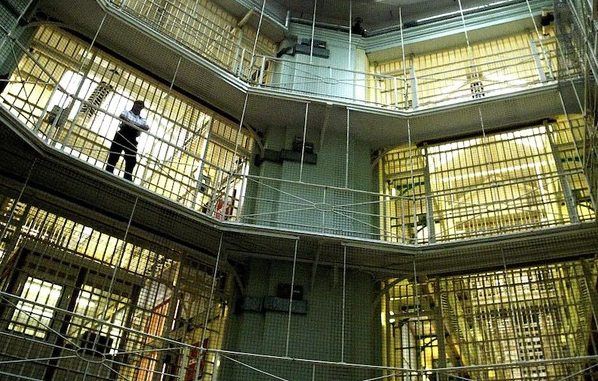
Struggling prison service is for the first time sponsoring skilled worker visas for overseas workers
Jails are recruiting prison officers from Nigeria and other countries to plug shortages in a move that has seen some camping or sleeping in their cars to save on accommodation.
The prison service is for the first time sponsoring skilled worker visas for overseas workers after a change in the rules enabled them to recruit from abroad.
Prison governors say many of them have come from Nigeria and include not only skilled workers but also some switching from other visa routes.
The Prison Officers Association (POA) has reported cases of overseas recruits turning up on their first day assuming they would be given accommodation along with their job.
Mark Fairhurst, the president of the POA, said one foreign recruit was commuting the 70 miles from Huddersfield to Nottingham for work but then decided it was cheaper to sleep in his car outside the prison.
He said that at another jail, foreign-recruited prison officers had set up a camp in a wooded area opposite the prison where they were working after discovering that there was no accommodation provided with the job.
“We have got problems with people who turn up at the gates with cases in tow and with their families saying to the staff: ‘Where is the accommodation?’,” said Mr Fairhurst.
Their recruitment follows a change in the visa rules in October 2023 that included prison officers on the list of skilled workers eligible for sponsorship.
Ministry of Justice (MoJ) sources suggested that up to 250 foreign nationals have so far been sponsored to work in the prison service after passing through their Zoom interviews and vetting.
Prison governors believe there are significantly more applicants which include those switching from other visas. They claimed that in one month last year two-thirds of the 3,500 would-be recruits were from Africa.
Tom Wheatley, the president of the Prison Governors Association (PGA), said the demand appeared to have been fuelled by word of mouth online.
“It’s turned into an approach that has been promoted online by the expat Nigerian community,” he said.
He said it had created difficulties in some prisons where there were a disproportionate number of foreign prison staff and, in remote rural areas, issues over their integration into the local community. There had also been “issues about language and communication,” in some jails.
A Prison Service spokesman said: “In October 2023, changes were made to the skilled worker visa scheme which has allowed the prison service to sponsor visa applications for foreign nationals.”
“All staff – regardless of nationality – undergo robust assessments and training before they work in prisons. Our strengthened vetting process roots out those who fall below our high standards.”
Earlier this week, Mr Fairhurst also criticised the prison service policy of hiring officers over Zoom and urged it to return to in-person interviews.
He said that frontline prison officers were routinely being recruited without any face-to-face interviews. Recruits were then given only six weeks’ training which was not enough time to learn how to manage prisoners, he said.
He said the process was “simply not fit for purpose” and that it was not surprising that corrupt and under-qualified officers were being recruited.
Last year, a record 165 prison staff were sacked for misconduct, an increase of 34 per cent on the previous year, according to the HM Prison and Probation Service.
This month a former HMP Wandsworth prison officer was jailed for 15 months after she was filmed having sex with an inmate.
The prison service said: “Our prison officers undergo robust assessments and an extended period of training before they work in prisons. We also continuously review our recruitment process to ensure our officers are best suited to their role and have strengthened vetting procedures to root out applicants who fall below our high standards.”

Leave a Reply